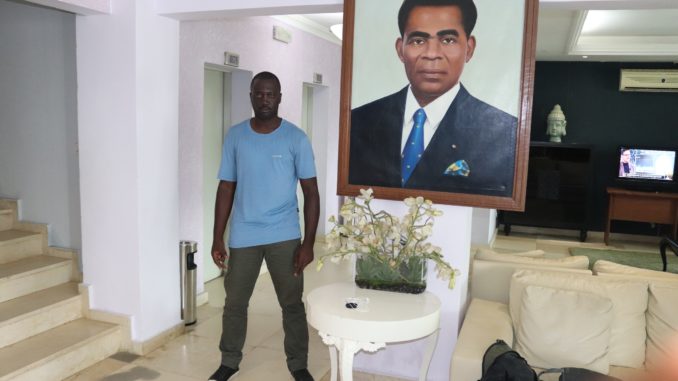
The Political Climate in Equatorial Guinea
The Political climate in the Equatorial Guinea has been a bit tense for some years now. The country is ruled by the longest serving president or dictator as some would rightly refer to him – Teodoro Obiang Nguema Mbasogo, most people in the country popularly refer to him as ‘Obiang’. The history of the country had been marred with histories of coups des etats and forceful takeover of power. The country which was under Spanish rule for more than 190 years was formally referred to Spanish Guinea before the name was now changed to Equatorial Guinea due to its proximity to the Equator – the country does not have any of its territories resident in the Equator though.
Equatorial Guinea or ‘Guinea Ecuatorial’ as they call it in Spanish has had a remarkable history since its independence. It has only had two presidents – a dictator and his ambitious nephew who took over power from his him and had him executed by a firing squad. Ever since then, there had always been rumors of coups and failed coups in the country.
Not too long ago, this little country which is roughly the size of Oyo State in South West Nigeria was in the news and it was alleged that some mercenaries were in the country’s mainland to invade the country and carryout a possible coup d’etat to get rid of the longest serving president of the world in order to install a new one. This move was interpreted by many who followed the news as strategy to clampdown on the opposition. There were some of the coup attempts that were real but the one that happened in 2018 had a mixed reaction from political observers worldwide.
Another bad reason again that brings the country to the news desk worldwide is that they still implement Capital Punishment. Even though the country plans to abolish that soon but all those has helped to preserve the tenure of the self-acclaimed ‘god’. According to a BBC report in July 2003, a state owned radio station declared that the president is a god and he is in permanent contact with the Almighty. The radio program went on to add that the president has powers to kill anyone without going to hell and advised every citizen to be peaceful and law abiding to avoid the wrath of the god! The president is however a devoted Catholic – what a contrast. Mobutu Sese Seko of Zaire said same about himself anyway.
Around the time when the 2018 attempted coup happened, the Kiossi/Ebibiyin border which was the bordered Equatorial Guinea and Cameroon was closed for almost six months before reopening. It was alleged that several of the mercenaries entered or intended to enter from that border post. Ever since it was reopened around 2018, they have imposed lots of securities and checks on the route. Another reason why they took security seriously on that route was due to the unrest in Cameroon. The Ambazonia separatists have been fighting the government of Cameroon and Equatorial Guinea basically does not want this to destabilize their country in any way.
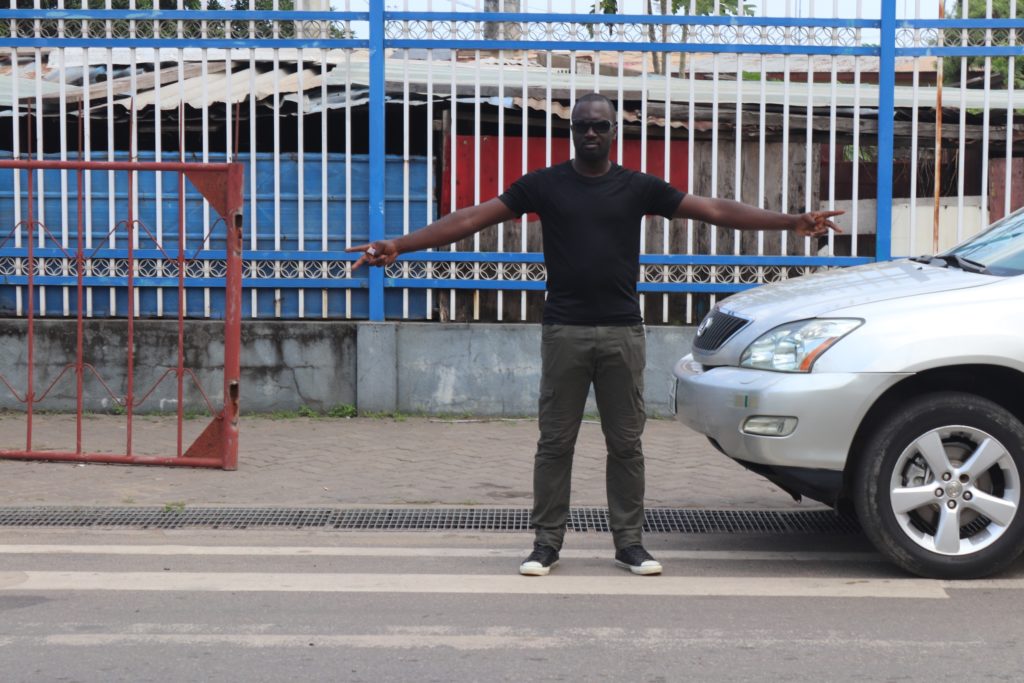
Even on the water ways. The capital of the country Malabo is very close to Nigeria. From Nigerian waters on a very clear day, one can see the Island of Malabo. Once I was traveling on that route from Oron in Nigeria to Idenau in Cameroon, I was told that the Equatorial Guinean marine would shoot any boat that trespasses their waters and most boat operators were very careful not to encroach. The country is very careful about who and who does not enter their territory. Maybe external forces can overthrow their ‘god’.
Regionally, most of Central Africa is ruled by dictators and that in my thoughts accounts for the reason why it is very difficult for foreigners to travel freely within the interior regions in the country except the capitals. Cameroon, Gabon, The Republic of Congo, Chad and several others where I have visited are very strict on foreigners arriving on land. Some of them would treat you badly because they could easily justify their treatment to you by accusing you of coming in to destabilize their government. They all have check points and task visitors to pay a particular amount before they are allowed to pass at their checkpoints. The case I experienced in Gabon was even far worse than what I encountered in Equatorial Guinea.
When I was trying to make some research about how to route my journey, I even read about some American and European tourists traveling the Mainland Equatorial Guinea who were arrested and were imprisoned for some days before they were allowed to continue their journeys – something you hardly hear about in Africa.
My Arrest
This was the place I was travelled to. I had been stamped into the country by an immigration officer who even though he wanted me to pay him a bribe, I successfully pleaded with him and he allowed me continue my journey. I was faced with another two whom their boss came to take over the case and we were presently driving to somewhere in town where I later found out to be a police station.
At the police station, I found out that I was brought there on the accusation that my mission for visiting the country was not known and that they suspect am a terrorist who had possibly been sent in to destabilize the government. I found this very funny initially but as the day went by, I found out they were serious and that I was going to be there for the next couple of days. My passport, sweater, and camera were confiscated – there was no way I could leave the place without having those things with me.
I got talking with a few of the police officers who fortunately were able to speak French. Most of them sounded very friendly and kind. We talked and I explained to them that I was a traveler and traveled for fun and have all my travel experiences documented. They asked me to show them pictures which I did. They were all excited watching my different albums and it was there and then they were convinced I was innocent of the crimes I was being accused of. They however were powerless to do anything to help me as the powers that held me were bigger than them and I still had my passport and other essential items at large.
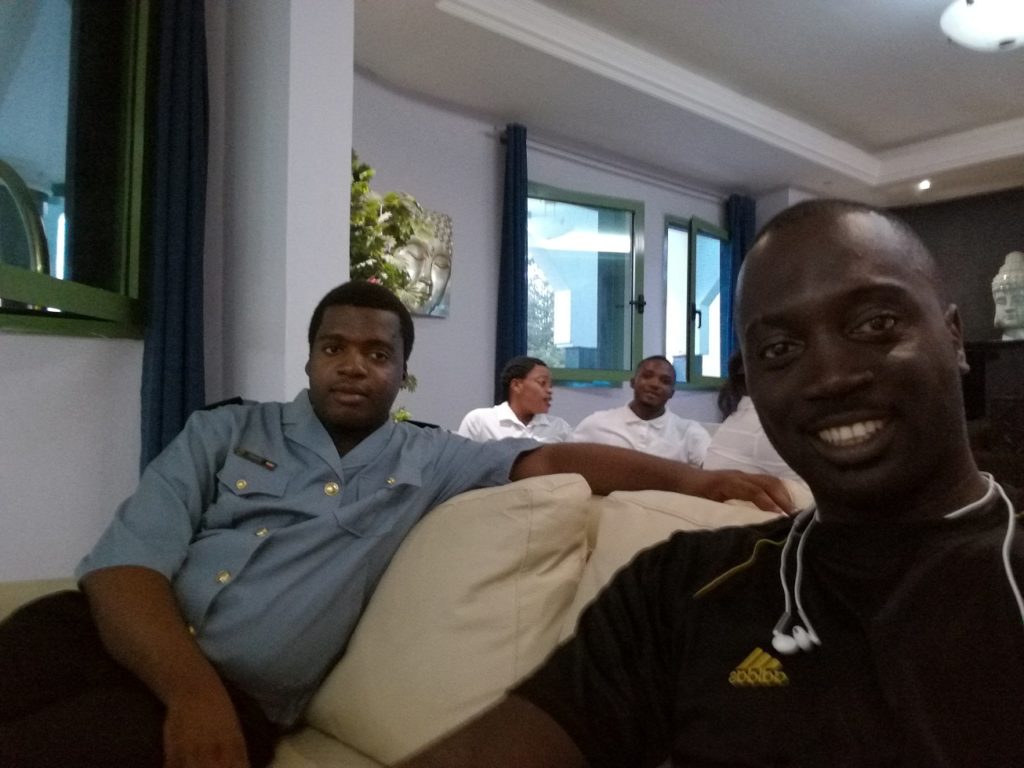
The policemen on their own part were very kind. They kept at the waiting room in the police station and did get me into the police jail there at the station. They were very kind and respectful being that they were sure I was not guilty as accused. They felt bad because of my predicaments. We all continued in conversations about my trips, their country, their culture and several other things till late night that day. I felt so good and at home with them. It was during one of such conversation that one of the very young high ranking officers who looked more educated and influential came in and noticed me. The other police officers told him my ordeal and he came to talk with me. He spoke English reasonably well and we became some sort of friends. He assured me he would get the highest authority to make sure am released and that I continued my journey in the country without difficulty. I will forever remain grateful to Santos. His full name is Santos Nguema. His last name makes me think he is somehow related to the president of the country, because his age and the amount of influence he had there does not resonate. We could age mates or I could be older than him.
For that evening, I never bothered to have any food to eat even though I was very hungry. I was preoccupied by the series of events and how things turned out quickly. I was also sure I was going to be allowed to go but I was also conscious of time, being that I still had two other countries to visit after visiting Equatorial Guinea. I was also grateful to the police officers. They allowed me use my phones because in most cases, they would confiscate your phones as well.
Advice for Visiting Equatorial Guinea overland:
- Don’t waste too much time talking to the officials at the border post. Just pay them what they ask for and continue with your journey.
- Avoid traveling with things that could arose suspicions like drones, advanced cameras and the likes. Some of the border officials are not too educated and will likely misunderstand your intentions
- Be sure to understand a little Spanish, French or Portuguese. I did not see many people who spoke Portuguese but French was very popular there. The local language on the mainland is mostly Feng. If you speak only English, you stand a chance of finding someone in the car or in the street who speaks English and they can help you.
- Bear it in mind that all foreigners are expected to pay a token of 2000 CFA ($4 USD) at every checkpoint on the road. It is advisable to have the cash ready before setting out for the travel. Traveling from Ebibiyin for instance to Bata have up to ten checkpoints and thus, you will have to spend roughly 20000 CFA ($40 USD) on bribes.
- Be very careful where you use your photograph. The police advised me eventually I should avoid using it in very open places.
- Be sure to always travel with enough cash. My Visa card could not work in most of the banks in Ebibyin. Even when I was in Bata, the largest city on the mainland Equatorial Guinea, I could still not use it.
- Regarding cash, it is advisable to come in with enough CFA, the currency used in the region. It is much easier to find people who are willing to convert euros to CFA than dollars. Also bear in mind that it is illegal to change money in the streets. Most people would not want to help you change money and would refer you to a bank. Even when I got to a bank in Bata, they still refused to change it for me. It was one of the customers at the bank that agreed to help me change the money when he saw I was a foreigner.
- Some hotels may not likely accept USD from you. They would even want you to pay extra commission that they would be charged when they go to convert the cash at the bank.
- Do not disrespect or insult the president in anyway. His loyalists are everywhere.
- Due to the unrest in Cameroon at the time, and the history of security issues at the Kiossi/Ebibiyin border, it was a trap for visitors to enter through that point. I was earlier advised to use the Oyem border in Gabon. Most people in Ebibiyin actually advised me to use the Oyem border as the security operatives there are much more relaxed than the one in Ebibyin – but you must have a visa for Gabon or at least would not require a visa for Equatorial Guinea before you are allowed to enter their territory.
As I noted earlier, I was arrested on a Friday evening and I was there in detention till Monday afternoon when the commander of the Police in that region visited and Santos invited me to meet him one on one. They afterwards released me and apologized to me. However, I will share my experiences in the next post and how one of the police officers forcefully sent me into the jail room and what happened afterwards.

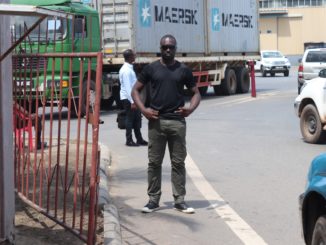
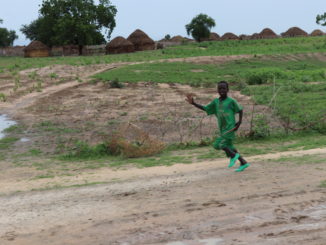
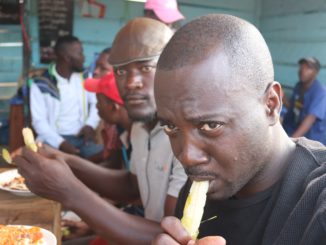
Na wa o. Encounters like this make me happy to be Nigerian,living in Nigeria. Also makes me appreciate how much more enlightened we are than most other African countries
Very true broda. There are lots we take for granted that elsewhere is a luxury. Some places are way better off than where we live.
The thing is to always be grateful for wherever/whatever we are/have.